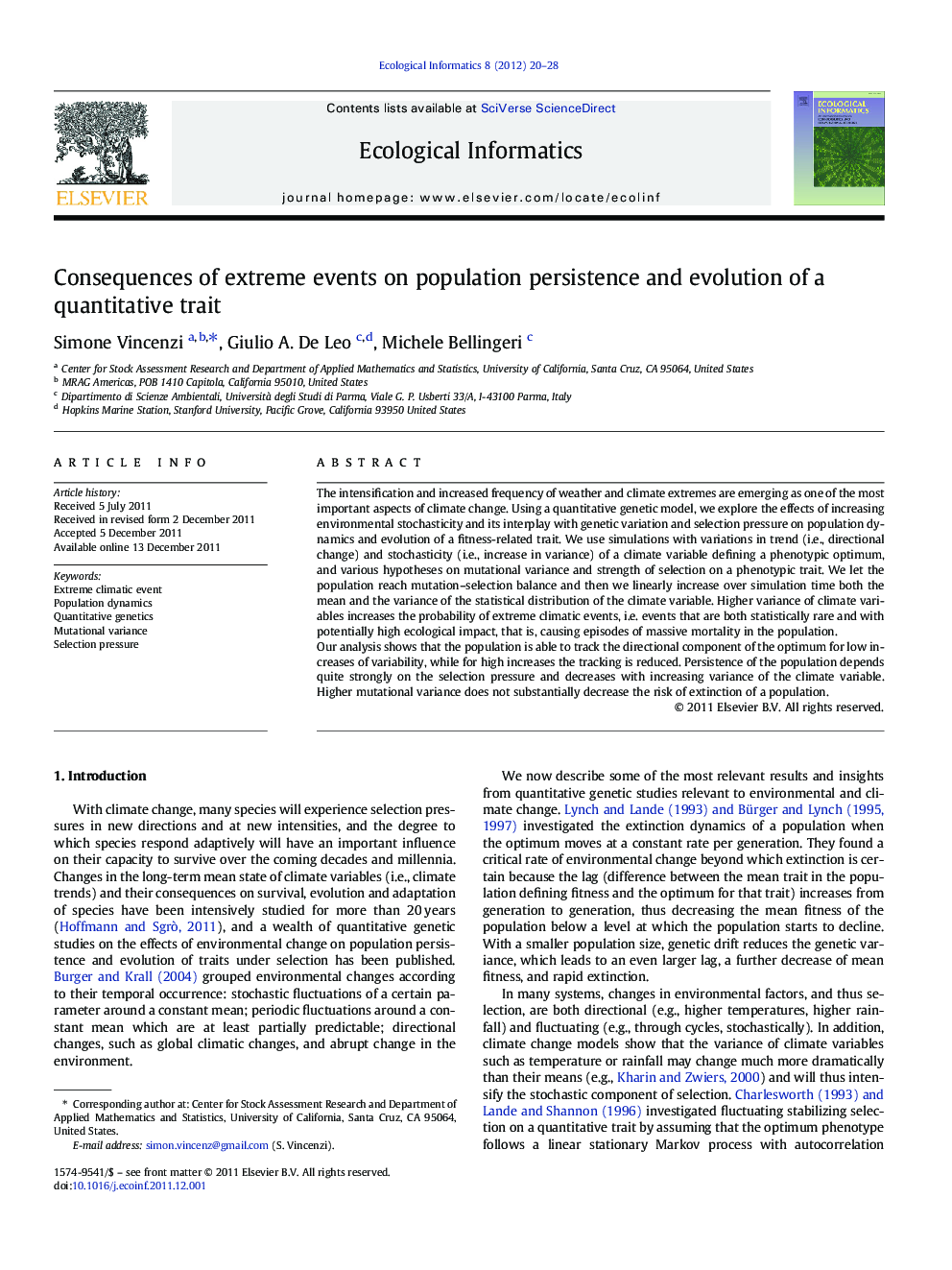| Article ID | Journal | Published Year | Pages | File Type |
|---|---|---|---|---|
| 4375106 | Ecological Informatics | 2012 | 9 Pages |
The intensification and increased frequency of weather and climate extremes are emerging as one of the most important aspects of climate change. Using a quantitative genetic model, we explore the effects of increasing environmental stochasticity and its interplay with genetic variation and selection pressure on population dynamics and evolution of a fitness-related trait. We use simulations with variations in trend (i.e., directional change) and stochasticity (i.e., increase in variance) of a climate variable defining a phenotypic optimum, and various hypotheses on mutational variance and strength of selection on a phenotypic trait. We let the population reach mutation–selection balance and then we linearly increase over simulation time both the mean and the variance of the statistical distribution of the climate variable. Higher variance of climate variables increases the probability of extreme climatic events, i.e. events that are both statistically rare and with potentially high ecological impact, that is, causing episodes of massive mortality in the population.Our analysis shows that the population is able to track the directional component of the optimum for low increases of variability, while for high increases the tracking is reduced. Persistence of the population depends quite strongly on the selection pressure and decreases with increasing variance of the climate variable. Higher mutational variance does not substantially decrease the risk of extinction of a population.
►We model population dynamics in a climate scenario with increasing extreme events. ► Climate change is defined as an increase in mean and variance of climate variable. ► A quantitative trait evolves depending on selection, mutation and climate change. ► Strong selection and variability decrease persistence with little effects of mutation.
